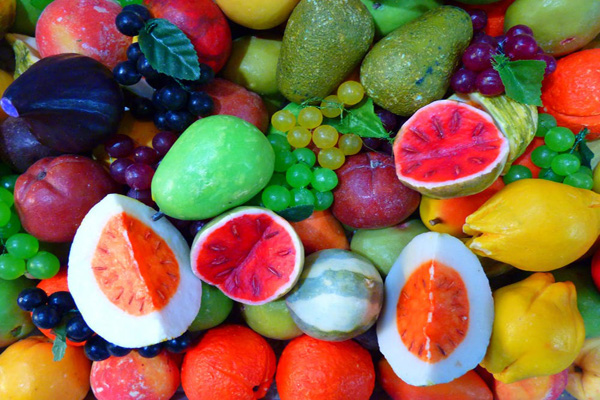15 Fruits and Veg You Don’t Need to Buy Organic
 A question I’m asked frequently by friends and family is ”How important is it to buy Organic fruit and vegetables?”
A question I’m asked frequently by friends and family is ”How important is it to buy Organic fruit and vegetables?”
It can be a confusing question as there is a lot of conflicting opinion in the media as to the nutritional benefits, but regardless of the data on the actual nutrient levels of organic vs. conventional, my biggest concern is the chemical residue from pesticides, fungicides, fertilisers etc compared to whether an organic apple has more nutrients than a conventional one.
It’s a difference in soil fertility in which the foods are grown. With organic methods, the nitrogen present in composted soil is released slowly and therefore plants grow at a normal rate, with their nutrients in balance. Vegetables fertilised with conventional fertilisers grow very rapidly and allocate less energy to develop nutrients. However, buying conventional produce from local farmers also has benefits as nutrient values in produce peak just after harvest. As a general rule, the less produce has to travel, the fresher and more nutrient-rich it remains.
In a perfect world, we’d all eat nothing but naturally grown produce from our local farmer (or straight from the enormous vegetable patch in our own back yard!) everything freshly picked that day, still covered by mineral rich soil and warm from the sun. Unfortunately, this isn’t always possible for us who live inner-city. Not to mention the financial strain to always buy everything organic.
So I usually answer by saying that if there was a short list of what you should buy organic, then include the foods that are known to be the most chemically sprayed conventionally and invest on those foods.
Recently the Environmental Working Group (a non for profit organisation that use the power of public information to protect public health and the environment) released their updated Short List of the Clean 15 and the Dirty Dozen http://www.ewg.org/foodnews/summary/ – the fruits and vegetables that are very low in pesticides (clean) and those that receive and retain an awful amount of pesticides (dirty). This is a good list to keep in mind when shopping – so if you were buying mainly non-organic produce, at least try to avoid the Dirty Dozen listed below.
The Clean 15 – Least pesticide residue found and okay to buy non-organic
- Onion
- Avocado
- Sweet corn
- Pineapple
- Mangos
- Sweet peas
- Asparagus
- Kiwi
- Cabbage
- Eggplant
- Cantaloupe
- Watermelon
- Grapefruit
- Sweet potato
- Honeydew Melon
The Dirty Dozen – this produce should always be purchased organic:
- Celery
- Peaches
- Strawberries
- Apples
- Blueberries
- Nectarines
- Capsicum
- Spinach
- Kale
- Cherries
- Potatoes
- Grapes (imported)
I would personally add broccoli to the organic list as well. When you look at these two lists you can see the foods ok to eat non-organic mostly have a protective skin to shield the goodness inside from harmful chemicals. So keep all this in mind, but in the end, just make the best choices with what’s available to you and always wash your produce well regardless.
Hopefully the more we buy organic, the more we create a demand for it, the more prices will come down.








